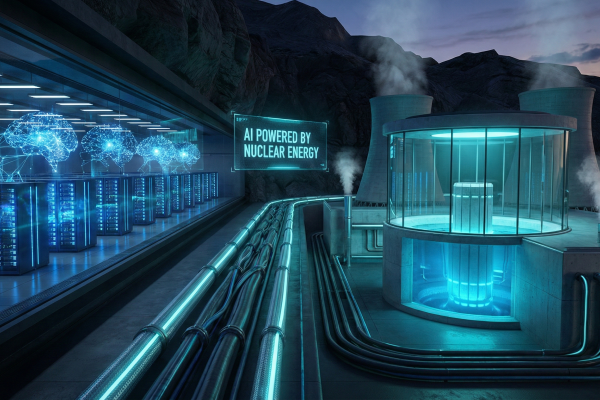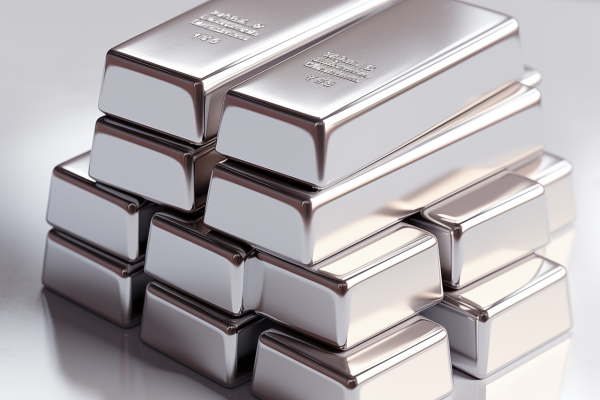September 2nd, 2025 | 07:00 CEST
The auto industry is at a crossroads – Who will solve the lithium problem? BYD, Mercedes-Benz, European Lithium
When the Chinese step on the gas, German premium manufacturers are left in the dust! As a recent article in Handelsblatt shows, Chinese auto suppliers are increasingly overtaking their international competitors. This is fatal – after all, suppliers are the ones driving innovation. One indicator is the battery sector: in the first half of 2025, the two largest Chinese battery manufacturers, CATL and BYD, together controlled 55.7% of the global electric vehicle battery market. The next-largest non-Chinese supplier is LG from South Korea, with a market share of just 9%. As it stands, European car manufacturers remain heavily dependent on Chinese batteries. We examine why this dependence is risky, which companies are already working to reduce it, and which stocks offer opportunities for investors.
time to read: 2 minutes
|
Author:
Nico Popp
ISIN:
BYD CO. LTD H YC 1 | CNE100000296 , MERCEDES-BENZ GROUP AG | DE0007100000 , EUROPEAN LITHIUM LTD | AU000000EUR7
Table of contents:

"[...] China's dominance is one of the reasons why we are so heavily involved in the tungsten market. Here, around 85% of production is in Chinese hands. [...]" Dr. Thomas Gutschlag, CEO, Deutsche Rohstoff AG
Author
Nico Popp
At home in Southern Germany, the passionate stock exchange expert has been accompanying the capital markets for about twenty years. With a soft spot for smaller companies, he is constantly on the lookout for exciting investment stories.
Tag cloud
Shares cloud
China is pulling ahead – What matters now for European car manufacturers
A recent study by AlixPartners calls China's automotive industry the "pacesetter of the global mobility transition". Sales figures from the world's most important automotive market, China, show that this is indeed the case: Between 2019 and 2024, BYD increased its market share in China from just 2.1% to over 16%. During the same period, Volkswagen's share shrank to just 12.3%. German premium manufacturers Mercedes-Benz and BMW also lost market share in 2024 to their Chinese competitors. China's automakers are now leading the way with shorter product cycles, faster innovation, and a sharp focus on consumer needs. Consumers worldwide are increasingly less interested in driving dynamics, sporty suspensions, or rapid acceleration, and instead increasingly value technical gimmicks, comfort, and connectivity.**
In order to compete with China, German automakers must take this development into account without abandoning their own DNA. Another decisive factor will be the degree of independence European automakers have from suppliers in China. After all, if critical components come exclusively from China, there is a risk of blackmail. Without their own battery industry, European car manufacturers are also giving up the opportunity to gain cost advantages along the value chain and possibly also to score points with sustainable subsidy conditions. One company that is driving forward a key project for the European battery industry is European Lithium.
European Lithium aims to build a giant mine in Austria
The Wolfsberg project in Austria is scheduled to go into production in 2027 and could be a game changer for the European battery industry. A definitive feasibility study for the project is already available. Once operational, the mine is expected to supply up to 10,500 tons of lithium hydroxide per year. Processing will take place in Saudi Arabia, where low energy costs and a local joint venture partner offer logistical and financial advantages. European Lithium has already signed an offtake agreement with BMW, for which the Bavarian automaker paid USD 15 million in June 2024. If the mine goes into production, BMW will be able to source lithium from Wolfsberg in return.
In addition to its flagship Wolfsberg project, European Lithium also holds shares in the Tanbreez project in Greenland, which is known as one of the largest rare earth deposits in the world and contains niobium, tantalum, and zirconium, among other elements. The key point is that the more European Lithium drills on this project, the larger its share in the project becomes. Most recently, the Company announced an offtake agreement with Ucore Rare Metals to advance the property. To complement Wolfsberg, European Lithium has also acquired a lithium project in Ireland, which is located in the immediate vicinity of a project owned by Chinese lithium heavyweight Ganfeng.
Lithium as the key to innovation – This stock has potential
If Wolfsberg goes into production in 2027 and European car manufacturers become less dependent on Chinese batteries, this could also enable European innovations that would set them apart from the competition. There are still many resourceful engineers with outstanding knowledge, especially in German industry, who just need to be guided in the right direction. European Lithium's stock has risen by almost 70% over the past six months, but remains well below its 2017 high. If the Wolfsberg project continues to progress as smoothly as it has so far, new opportunities may also arise for investors in the Company, which is currently valued at approximately EUR 80 million. European Lithium is a beacon of hope for the European automotive industry. Without the lithium company and its Wolfsberg project, it will be difficult for Mercedes-Benz and others to free themselves from Chinese influence.
Conflict of interest
Pursuant to §85 of the German Securities Trading Act (WpHG), we point out that Apaton Finance GmbH as well as partners, authors or employees of Apaton Finance GmbH (hereinafter referred to as "Relevant Persons") may hold shares or other financial instruments of the aforementioned companies in the future or may bet on rising or falling prices and thus a conflict of interest may arise in the future. The Relevant Persons reserve the right to buy or sell shares or other financial instruments of the Company at any time (hereinafter each a "Transaction"). Transactions may, under certain circumstances, influence the respective price of the shares or other financial instruments of the Company.
In addition, Apaton Finance GmbH is active in the context of the preparation and publication of the reporting in paid contractual relationships.
For this reason, there is a concrete conflict of interest.
The above information on existing conflicts of interest applies to all types and forms of publication used by Apaton Finance GmbH for publications on companies.
Risk notice
Apaton Finance GmbH offers editors, agencies and companies the opportunity to publish commentaries, interviews, summaries, news and the like on news.financial. These contents are exclusively for the information of the readers and do not represent any call to action or recommendations, neither explicitly nor implicitly they are to be understood as an assurance of possible price developments. The contents do not replace individual expert investment advice and do not constitute an offer to sell the discussed share(s) or other financial instruments, nor an invitation to buy or sell such.
The content is expressly not a financial analysis, but a journalistic or advertising text. Readers or users who make investment decisions or carry out transactions on the basis of the information provided here do so entirely at their own risk. No contractual relationship is established between Apaton Finance GmbH and its readers or the users of its offers, as our information only refers to the company and not to the investment decision of the reader or user.
The acquisition of financial instruments involves high risks, which can lead to the total loss of the invested capital. The information published by Apaton Finance GmbH and its authors is based on careful research. Nevertheless, no liability is assumed for financial losses or a content-related guarantee for the topicality, correctness, appropriateness and completeness of the content provided here. Please also note our Terms of use.




